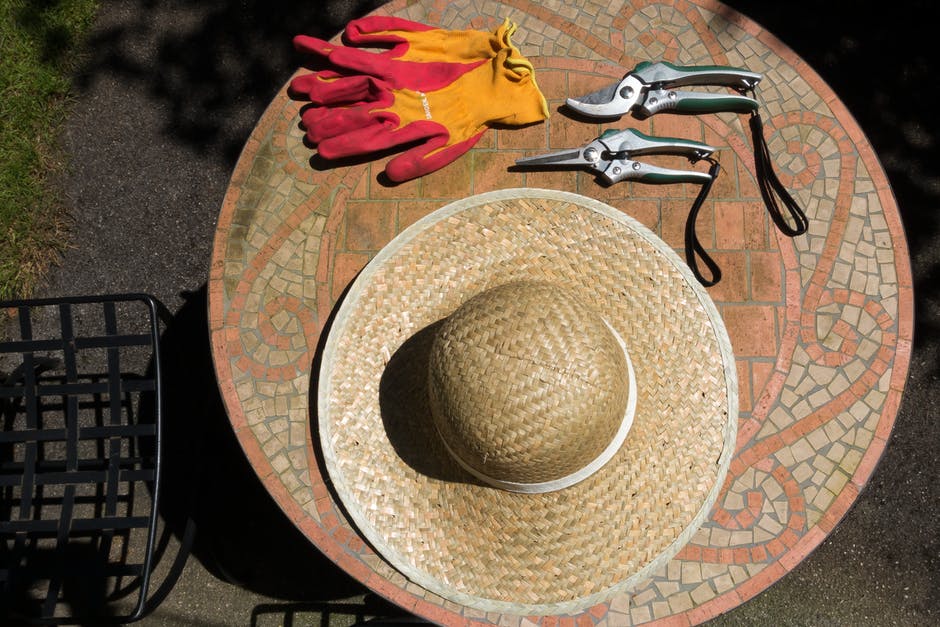
As September draws near, this is the time of year I find myself most vulnerable to gardening burnout. Midsummer weather is fierce, produce starts to ripen at a lightning fast pace, and weeds seem to grow out of control all of a sudden. If you’re new to gardening, this is an especially delicate time. But don’t despair! Burnout is normal and temporary.
What’s gardening burnout?
One of my other hobbies aside from gardening is running, and burnout is a term that’s thrown around often in the running community. Magazines, online articles, and coaches all put forth tips to combat overtraining and burnout. It usually happens because a runner takes on too much, isn’t listening to their body, and doesn’t take the proper rest required to stay in tip-top shape.
I believe the same thing can easily happen to gardeners. Especially those dealing with budgetary concerns. I love to garden, but having to pinch pennies and find ways to keep my gardening low-cost is a stressor all on its own. Pair that overwhelming concern with the hard work needed to nurture a garden and it’s no wonder that when September rears its head that many among us run out of steam.
How to deal with gardening burnout
Unusually hot weather, garden pests, and plants that may not be thriving can leave gardeners discouraged. The further we get into the gardening season, the more there is to do. You may be tired of walking out to the garden to discover cabbage moths munching on your kale or find it hard to deal with setbacks. I recently had to pull a squash plant after it was irreparably damaged from a vine borer infestation. Don’t let the setbacks deter you. Here’s how to get some of that gardening mojo back, without spending money this late in the season.
- Switch your watering schedule. Tired of waking up early to water your thirsty plants? Do it in the evening instead. Or, check the weather and let Mother Nature do some of the work. Daily waterings are ideal in the heat of the summer, but I’ll admit that sometimes I’m tired of trudging out there. If I see a rainstorm is in the forecast for the next few days, I don’t feel guilty skipping a day.
- Accept some losses. Squirrels are going to munch on cobs of corn. Caterpillars are going to nibble on your collards. This late in the summer, there’s no use trying to mount a full assault on these dreaded garden enemies. Pick off the worms and shake your fist at the squirrels, but don’t let it get to you.
- Start cleaning. Some plants may start to wilt and look worse for wear. It may be the weather, it may just be that a particular variety isn’t doing well in your garden. Don’t sweat it. Dispose of it and plant a quick growing fall crop (e.g., radishes, mesclun mix, arugula).
- Enlist some help. Ask friends or family to help you with your gardening tasks for a day. Make it a fun activity for kids. Pick ripe veggies and clean up weeds together rather than solo. Make a veggie feast as a reward for everyone’s hard work.
- Don’t feel obligated. You don’t need to do anything. If you’re spent, you don’t need to plant fall crops. In fact, being ready to close the garden when fall comes around can leave you well-prepared for next year.
Rest easy
Know that you’re not alone. Plenty of people find themselves overwhelmed and tired of their gardening routine at some point during the season. Welcome the colder weather ahead with open arms. I find that knowing that there’s a winter season coming helps me to mentally rest and recharge for the next year of playing in the dirt. By the time January rolls around, I’m usually itching to start planning and prepping my seed starting stations.
Why is coping with burnout important for a frugal gardener? When your garden grows rapidly, and it feels tough to keep things organized and sorted out, it’s tempting to find easy ways and shortcuts to deal with problems. It’s a surefire way to find yourself spending money unnecessarily. A little bit more of a laid-back attitude can help you prevent impulse buys. Cabbage loopers driving you insane? Don’t run to the store to buy a pricey pesticide. Summer is nearing an end, after all! Leave it to the birds and enjoy those fresh grown tomatoes.

Steph Coelho is a freelance writer gardening in zone 5b. She is a certified Square Foot Gardener and has taught various garden-related workshops. When she’s not digging in the dirt or writing, she’s cooking up fresh produce, running, or listening to her favorite podcasts.
Leave a Reply